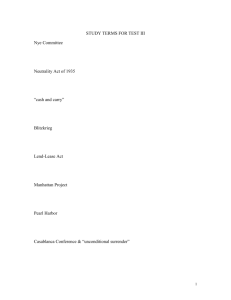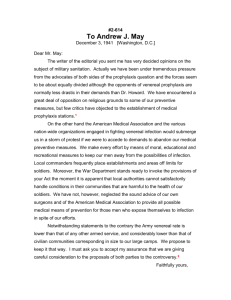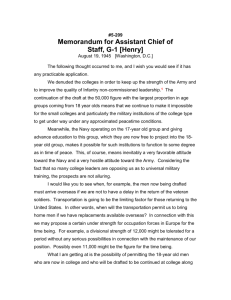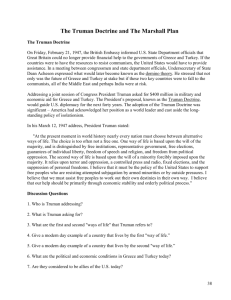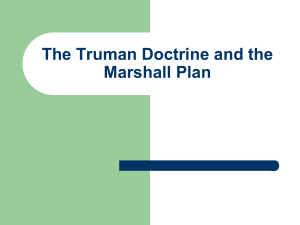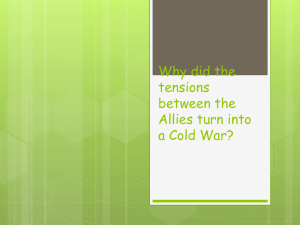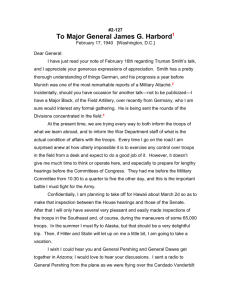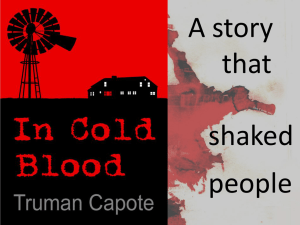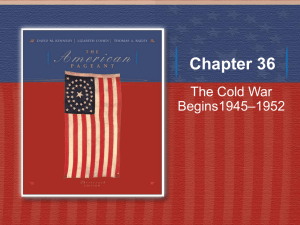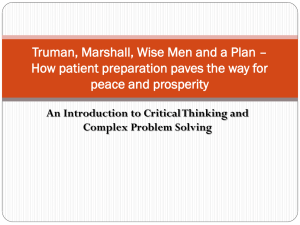2-579 - George C. Marshall Foundation
advertisement
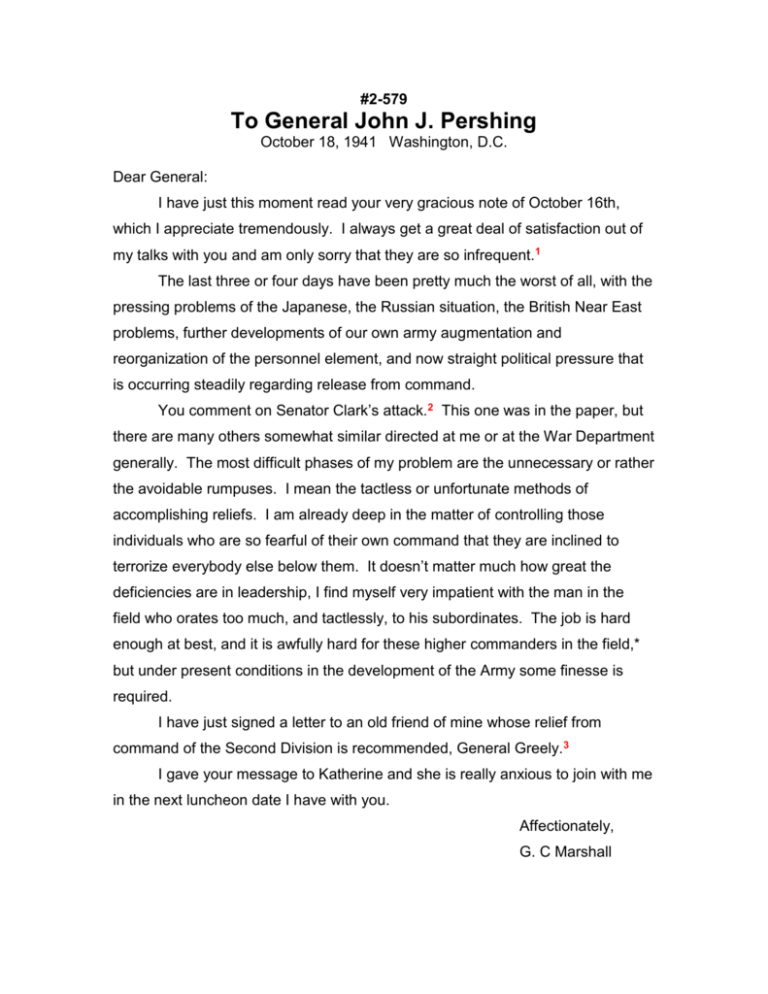
#2-579 To General John J. Pershing October 18, 1941 Washington, D.C. Dear General: I have just this moment read your very gracious note of October 16th, which I appreciate tremendously. I always get a great deal of satisfaction out of my talks with you and am only sorry that they are so infrequent.1 The last three or four days have been pretty much the worst of all, with the pressing problems of the Japanese, the Russian situation, the British Near East problems, further developments of our own army augmentation and reorganization of the personnel element, and now straight political pressure that is occurring steadily regarding release from command. You comment on Senator Clark’s attack.2 This one was in the paper, but there are many others somewhat similar directed at me or at the War Department generally. The most difficult phases of my problem are the unnecessary or rather the avoidable rumpuses. I mean the tactless or unfortunate methods of accomplishing reliefs. I am already deep in the matter of controlling those individuals who are so fearful of their own command that they are inclined to terrorize everybody else below them. It doesn’t matter much how great the deficiencies are in leadership, I find myself very impatient with the man in the field who orates too much, and tactlessly, to his subordinates. The job is hard enough at best, and it is awfully hard for these higher commanders in the field,* but under present conditions in the development of the Army some finesse is required. I have just signed a letter to an old friend of mine whose relief from command of the Second Division is recommended, General Greely.3 I gave your message to Katherine and she is really anxious to join with me in the next luncheon date I have with you. Affectionately, G. C Marshall * This does not refer to Lear4 Document Copy Text Source: John J. Pershing Papers, General Correspondence, Library of Congress, Washington, D.C. Document Format: Typed letter signed. 1. Pershing had written: “You can scarcely realize how much pleasure it gives me to have you come out [to Walter Reed General Hospital] for luncheon with me. Aside from your personal presence, it gives me an opportunity to keep more or less in touch with what is going on in the Army. I am happy to know that everything seems to be doing quite well, although I do hear once in a while considerable criticism as to the discipline in some of the divisions. And in this morning’s paper I notice that Bennett Clark has criticized General Lear for relieving General Truman. These things are to be expected and to some extent are unavoidable. Thank heaven I was free from all that sort of thing in the A. E. F.” (Pershing to Marshall, October 16, 1941, GCMRL/G. C. Marshall Papers [Pentagon Office, Selected].) 2. In a letter to the chief of staff dated September 11, Lieutenant General Ben Lear had requested that Major General Ralph E. Truman, commanding general of the Thirty-fifth Division (National Guards of Missouri, Kansas, and Nebraska) be relieved from command. This was done at the end of the month. (Haislip Memorandum to The Adjutant General, September 29, 1941, NA/RG 165 [OCS, 8136–25].) Truman decided to resign rather than accept another assignment. When Lear sent senior senator from Missouri Bennett Champ Clark a telegram informing him of Truman’s decision, Clark released his reply to the press. “It is, of course, the old Army game which does not intend to leave a National Guard officer, no matter how efficient, in command of a National Guard division. You are trying to blame the tactical defeat which your Army suffered on Truman and various other National Guard officers, which is exceedingly unfair. You should retire yourself rather than make General Truman the goat.” (New York Times, October 16, 1941, p. 11.) Major General Truman was Senator Harry S. Truman’s cousin. 3. No copy of the chief of staff’s letter to Major General John N. Greely was retained in the Marshall papers. Greely was assigned to the Army Group, Washington, D.C., and directed to organize a military mission to the Soviet Union. 4. Marshall added the asterisks and postscript in his own hand. Recommended Citation: The Papers of George Catlett Marshall, ed. Larry I. Bland, Sharon Ritenour Stevens, and Clarence E. Wunderlin, Jr. (Lexington, Va.: The George C. Marshall Foundation, 1981– ). Electronic version based on The Papers of George Catlett Marshall, vol. 2, “We Cannot Delay,” July 1, 1939-December 6, 1941 (Baltimore and London: The Johns Hopkins University Press, 1986), pp. 648–649.
